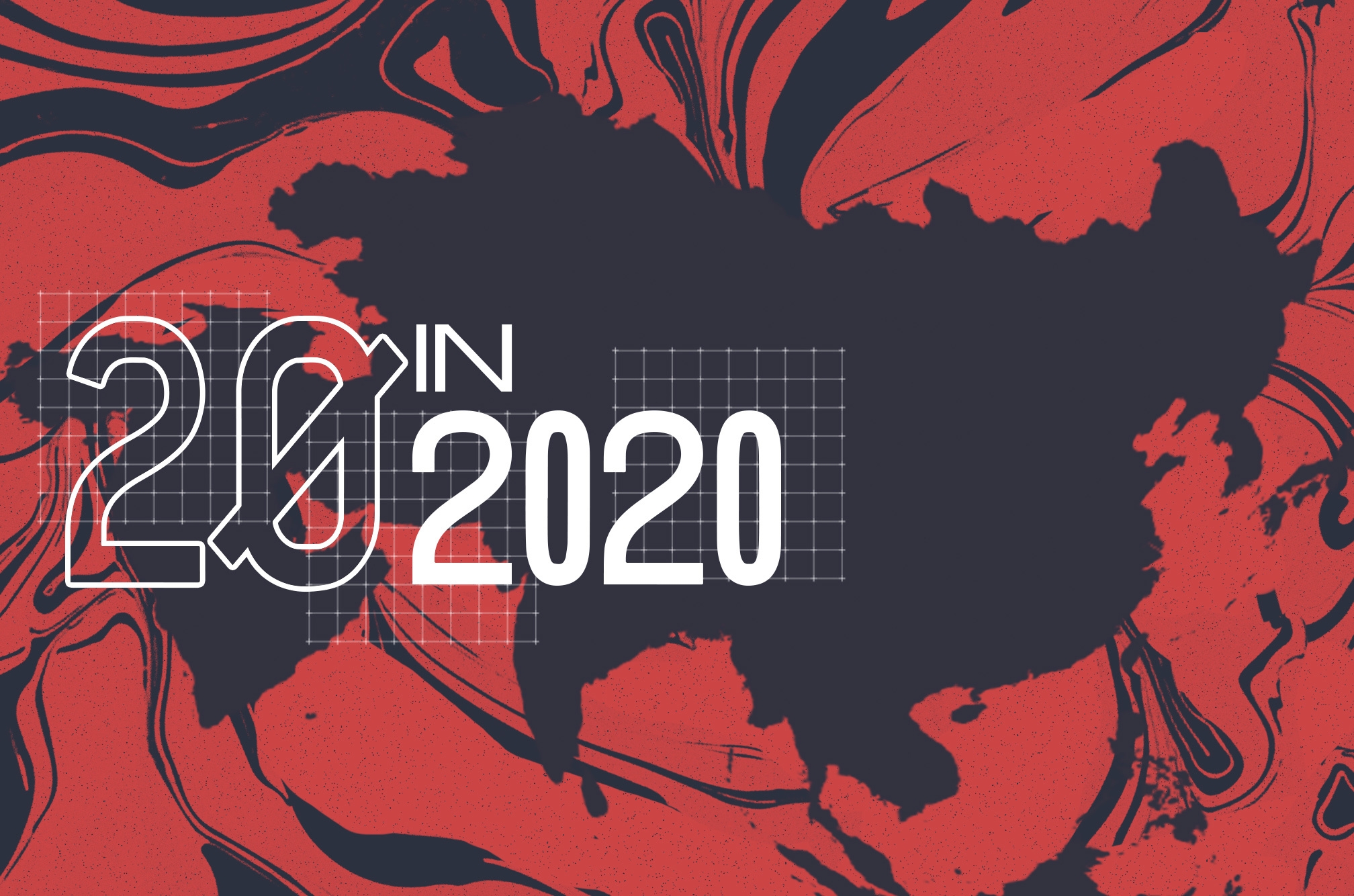 Lists
Lists
2020, as told through 20 spectacular moments in Asia
Yes, 2020 sucked so we're tapping out on a positive note & spotlighting those who made it suck a little less
Surviving 2020 was something like living in a perpetual state of purgatory. COVID cleared dance floors and the year’s been filled with hope that continues to be shattered by one set back or another. While it was heartbreaking to see a community that was finally finding its place amongst an industry of global players be decimated by the pandemic, the year also gave opportunity for a lot of strong-willed and passionate punters to keep the music alive, or at least not die completely. Yes, 2020 sucked but thanks to some innovative people who thought outside of the proverbial box (and quickly), 2020 sucked a little less, so we thought it best to tap out of 2020 on a positive note. Thanks to everyone on this list, our community in Asia, for everything that you've done — you’ve given us hope and paved the way to a (hopefully) solid recovery in 2021.
1. When United We Stream became a first responder in Asia
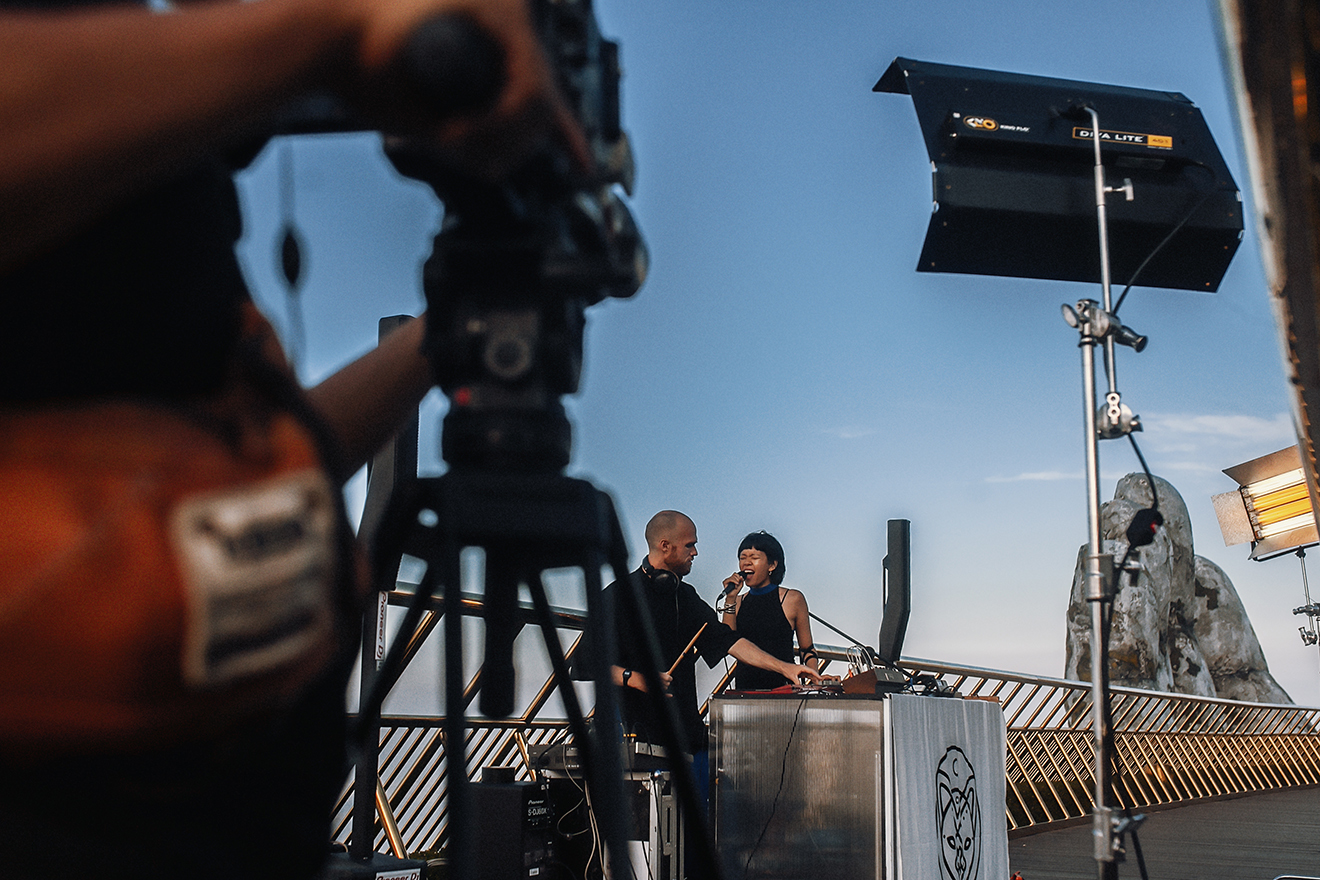
Clubs were the first to go. Festivals came next, followed by a quick crumbling of an industry and community that Asia has spent a long time nurturing. But help came, and United We Stream Asia, together with ARTE Concert and Club commission Berlin, was one of the first responders. United We Stream is a non-profit streaming initiative started by Berlin clubs just after the onset of the pandemic with the goal of raising funds for charity and supporting music venues and individuals affected by COVID-19 related closures. Soon after, it banded together in Asia to broadcast from inside clubs across Asia to the world, showcasing the entire range of diverse club culture in Asia on one channel to raise awareness surrounding the many facets of the current climate. United We Stream Asia raised $14,360 dollars that was given back to the music industry via a relief fund with 10% going to a local charity.
2. When Taiwan made headlines for being the best place to be mid-pandemic

For many years, Taiwan was eclipsed by its bigger and shinier neighbours despite being smack dab in the centre of Asia. The island was often missed on the tours schedules of international artists but those who did make it over considered its music scene an untapped gem — especially for its underground scene. This year, thanks to its government’s quick response to the pandemic, Taiwan made headline after headline for being the place to be during the pandemic. Life on the island largely went on as usual: nightclubs stayed open and festivals were the first to return. S2O Music Festival and Road To Ultra Taiwan even drew some of the first international acts to tour in a post-pandemic world and played to a crowd of around 25,000 people. The events also laid the groundwork for what festivals could look like in the new normal, with artists sitting two weeks quarantine before being let out into the wild. Whether you’re into the music or not, seeing pictures and videos from around Taiwan tugged at our heartstrings and made us miss the energy of the dance floor.
3. When Goldie gave people art
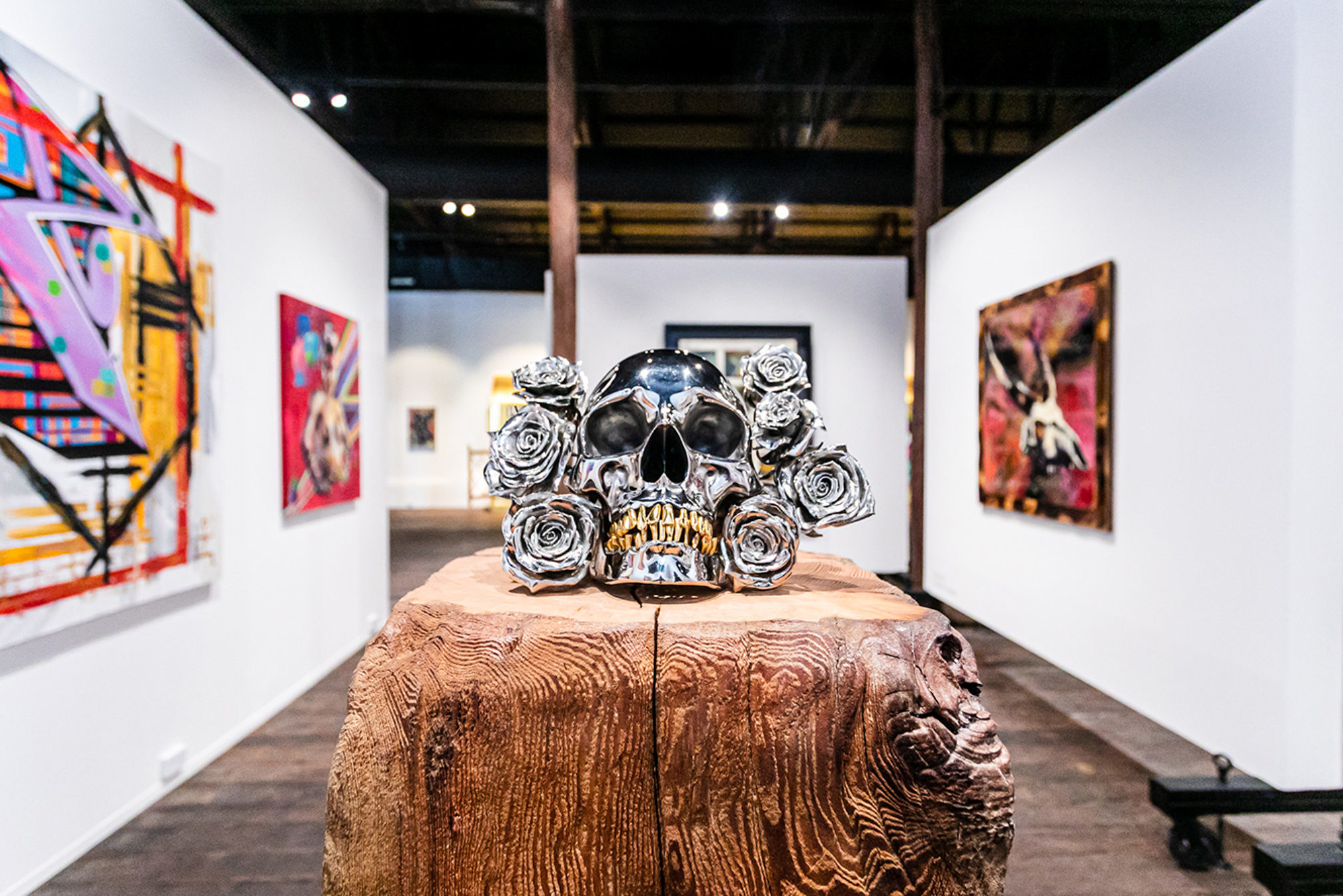
When Goldie announced that he was opening an art gallery in Thailand, the news quickly became one of our most-read stories of the year. It’s not often that an artist from the West chooses Asia as a permanent home for their life’s work. But the pandemic hit and Goldie was faced with two options: chuck the towel in or let his art be seen. “Worst case scenario is we have invested in some great art that will never get seen — but it has to be seen!” In an interview with Mixmag Asia, the artist compared the current need for art to history and decided that people, now more than ever, needed this. “When it comes to any kind of struggle, we go towards the arts and music, we always have done for centuries. As long as music has existed, when there's a problem, like when New York went through its mad depression, people turn to music and art.” The gallery officially opened in June of 2020 and has continued to keep people in Thailand focused on art. We’re looking forward to the day that travel resumes and we can visit the gallery ourselves.
4. When several new radio stations brought more music to people when they needed it most
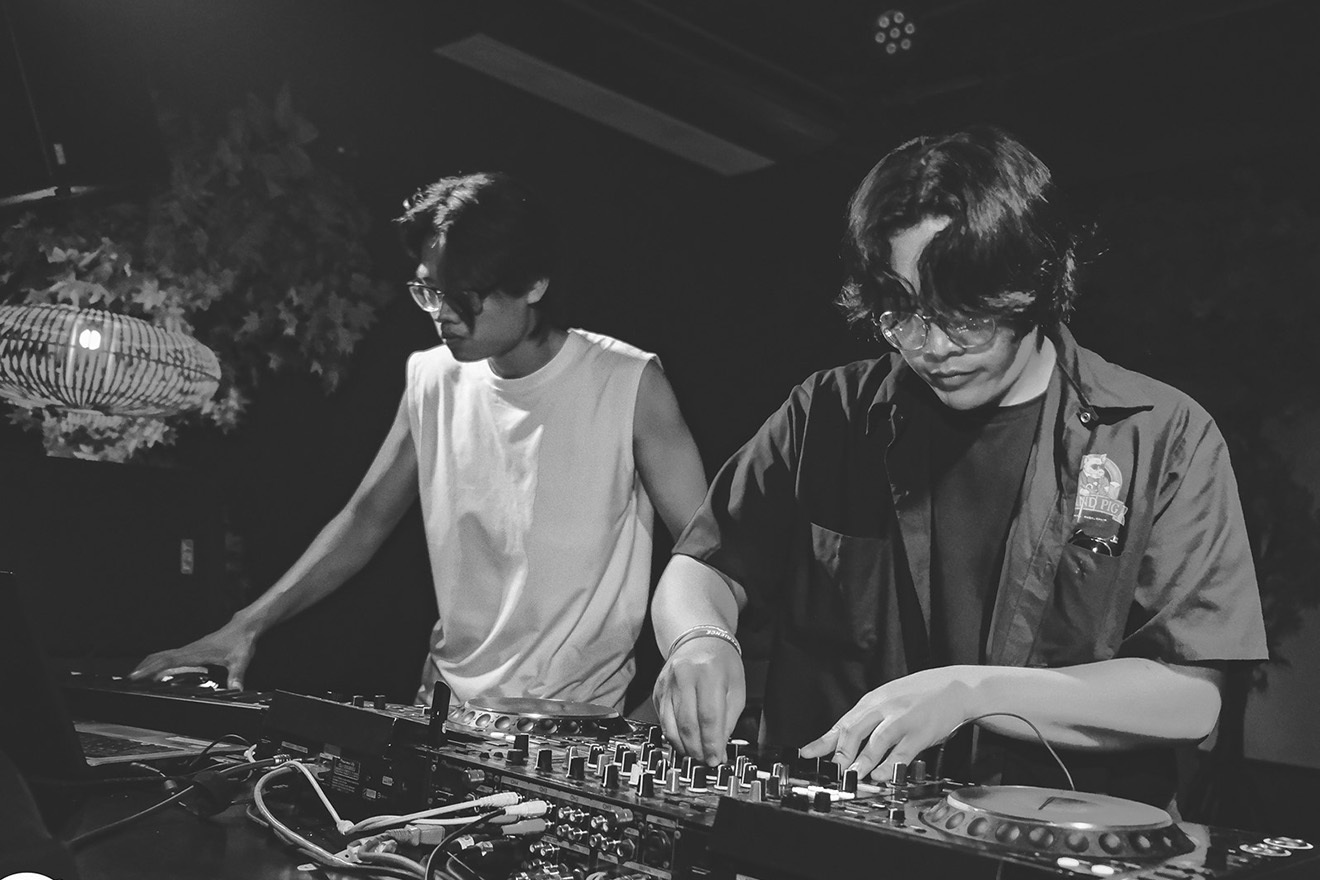
We really needed an influx of music from our favourite club and festival DJs from across Asia, and to and beyond our satisfaction, Asia’s music aggregators delivered. Bangkok-based UNST teamed up with regional label More Rice to create More Unst Radio, while around the street corner, Studio Lam and ZudRangMa honcho Maft Sai set up ZudRangLam Radio featuring a sweet selection of global grooves. Both Manila and Singapore saw their respective Community Radio platforms come to life, MCR and SCR. Also in Singapore, hospitality group A Phat Cat Collective launched a paid subscription platform on Mixcloud featuring the city’s top selectors like Bobos, YA5TH, Brendon P and Joshua P. Over in Vietnamese metropolis of Ho Chi Minh City where the scene has been rampantly growing, DJs like Zwi, Nayla, Khoi Mai and plenty other locally-based DJs are shaping things up on Mogra Radio.
5. When the first international DJs touched down in Asia
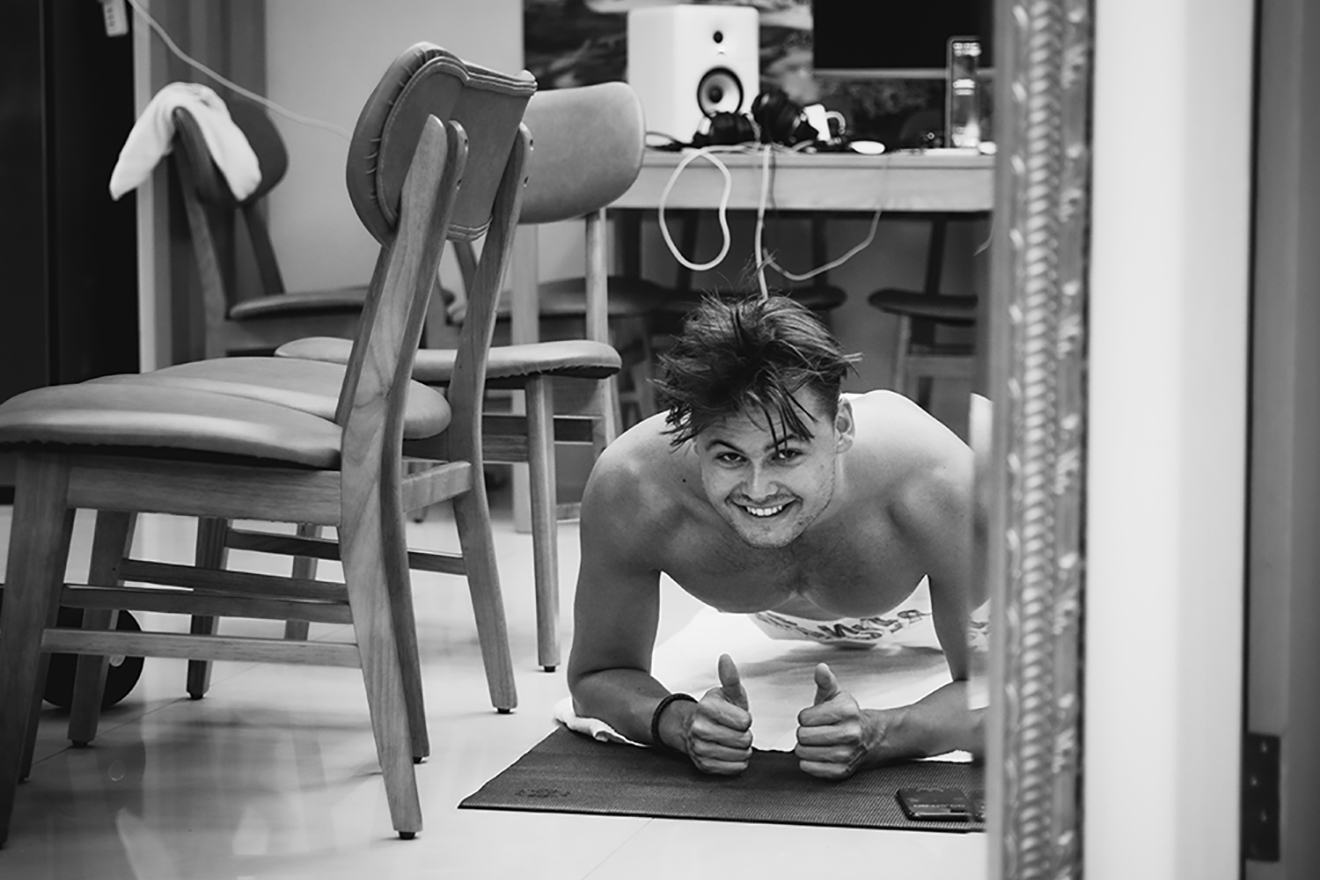
Here and there, events have been happening all year around Asia. In fact, China quietly threw a couple of festivals during the summer, from an all-underground affair on the beach to an all-out EDM extravaganza with 15,000 people and a DJ set by Eric Prydz via hologram. But it wasn't until Danny Avila and Mike Williams touched down in Taiwan did we know that touring had officially been restarted in Asia. The artists both sat two weeks of quarantine in Taiwan before testing negative and being allowed to perform at S2O Music Festival in Taipei. Both artists then did a small tour of Taiwan, an idea that was no easy feat to get the government on board with. But perseverance paid off and the experience laid the groundwork for touring in Asia, with Road To Ultra in Taiwan and 808 Festival in Thailand quickly following in the same footsteps and booking even bigger line-ups with international acts. Through their social media accounts, the artists made 14 days of quarantine look doable and completely worth it. And in their suitcases, they also brought music, experiences, hope and change to Asia.
6. When new clubs took the greatest of all risks and...opened
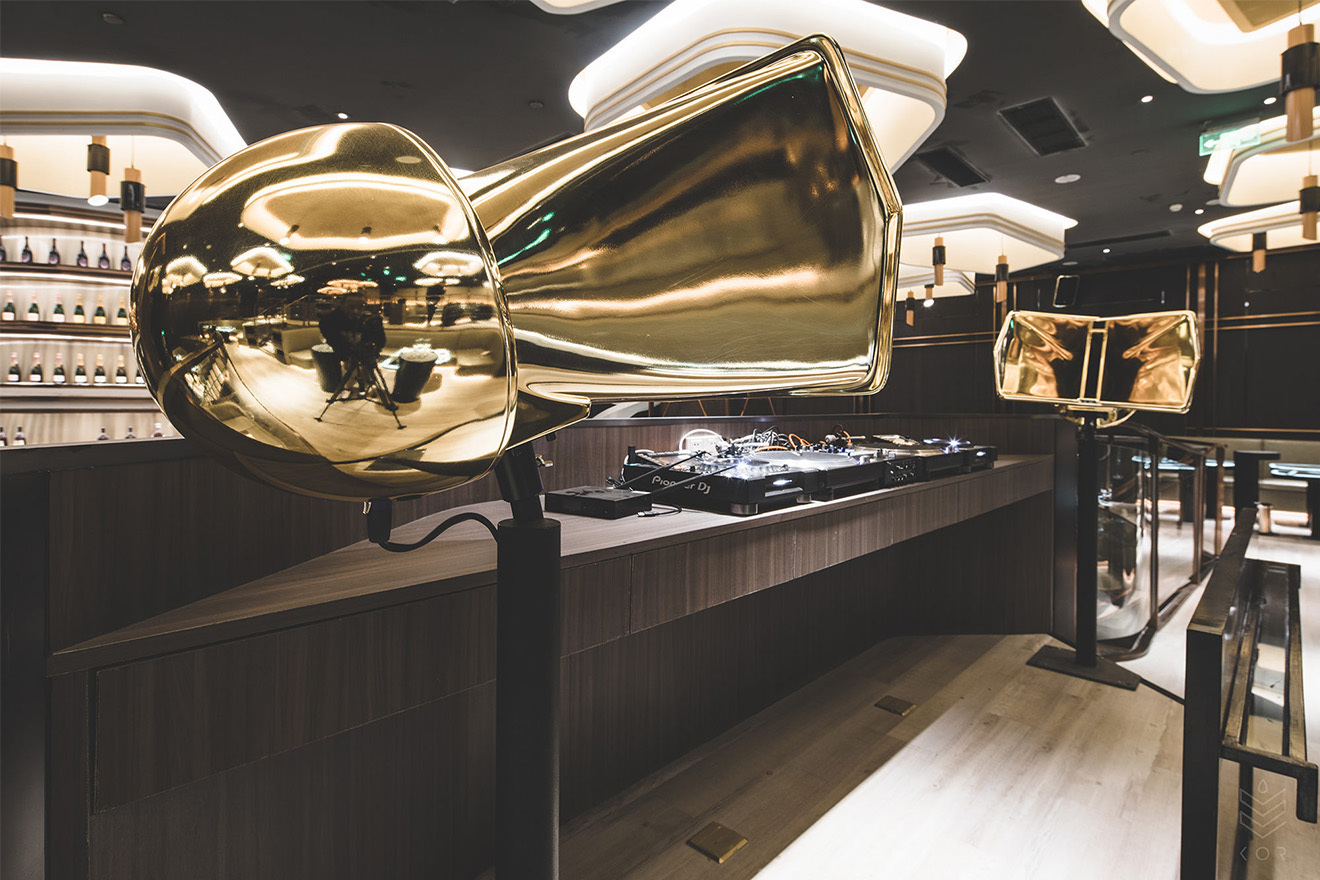
Nobody expected to hear about club openings this year, and it’s no surprise that the clubs and venues that did open their doors for the first time this year also come with cushy prices on their menus. But, don’t worry, you can still order drinks by the glass. Soft opening a shiny new club at the start of the pandemic proved to be a battle easily overcome by the team behind KOR Shanghai, as the opulent gold-tinted VOID Acoustics system-clad venue has become Shanghai’s most talked about club space this year. Leaning closely on that scale of opulence is Savaya in Uluwatu, a stunning, minimalistic renovation of the epitomic OMNIA Bali — we’ve been told the music programming is what will excite us most in 2021. Bangkok has also managed to persevere despite the absence of tourism, and the 2 notable openings are certainly iconic for the city. Curve opened in September as a 150 capacity dance floor on the 47th floor of a Bangkok skyscraper, whilst on the lounge tip, Siwilai Sound Club opened up as a stylish, high fidelity audio listening room, where the mixologist mixes both drinks and jazz records (before the official DJ of the night starts).
7. When the legendary DJ Nobu petitioned to save Tokyo's nightlife
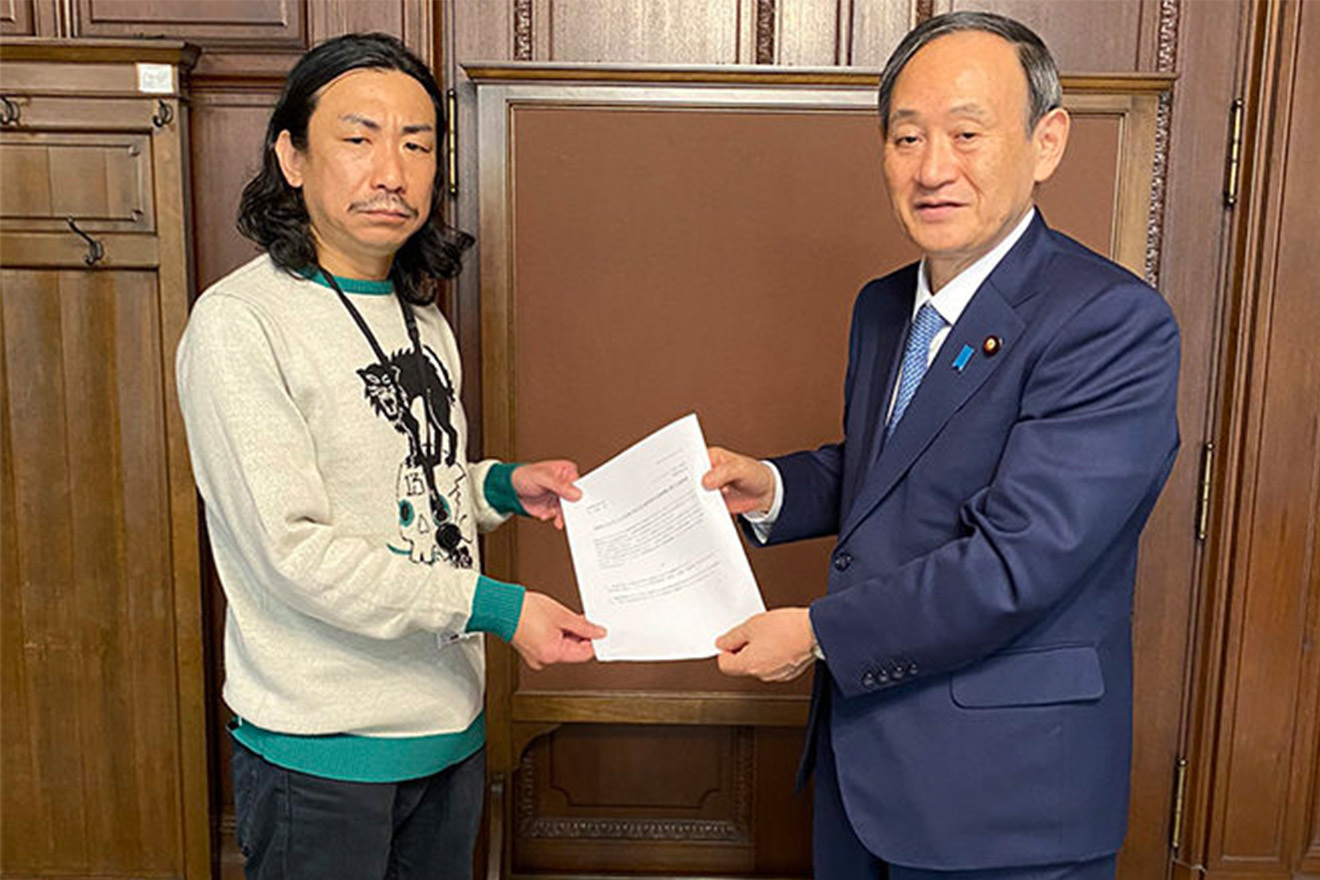
#SaveOurSpace was a movement initiated in March 2020 by techno legend DJ Nobu, along with a committee that included Yu Saganami of Live Haus, Miru Shinoda, Lark Chillout and Mars89. The troupe put forward an initiative to the Japanese government to compensate for the nightlife industry, namely clubs and live venues that were drastically suffering. Japan’s benchmark of club culture has been revered for its level of dedication and unparalleled creativity — some of the clubs that were affected and closed included some of the world’s finest such as WOMB, Vent, Ageha, Contact and Circus Tokyo. Government compensations started rolling out in April, and fortunately, nightlife started resuming in Tokyo by June.
8. When collaborations bridged transnational airwaves
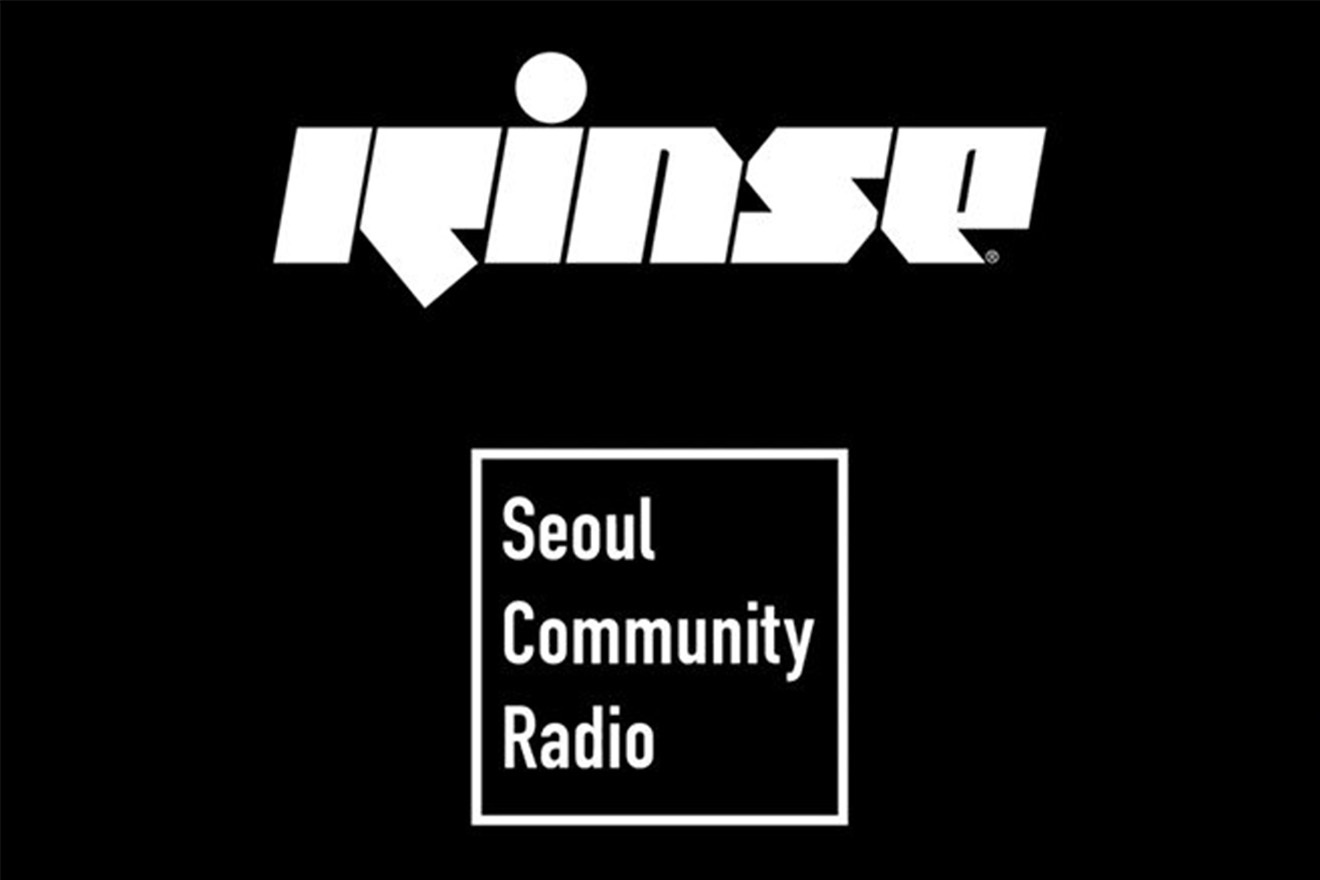
One of our favourite collaborations to see rise is the phoenix that now flies the airwaves between London and Seoul every month — Seoul Community Radio teamed up with London’s pivotal pirate radio station Rinse FM earlier this earlier. The widespread exchange has seen some pretty exciting sets from both sides since launching at the end of summer, including Net Gala of the LGBTQ community Shade Seoul, a power hour of old school rave with Mall Grab and an INFINITI TRAX showcase. On the flipside of the music spectrum, a groundbreaking collaboration between trailblazing media platform 88rising and Canadian network Sirius XM launched a 24/7 channel with an all-Asian focus on programming. The one of a kind platform will feature artists like Yuna, Dumbfounded, Keshi and a plethora of undiscovered and underratedAsian talent.
9. When new labels were minted
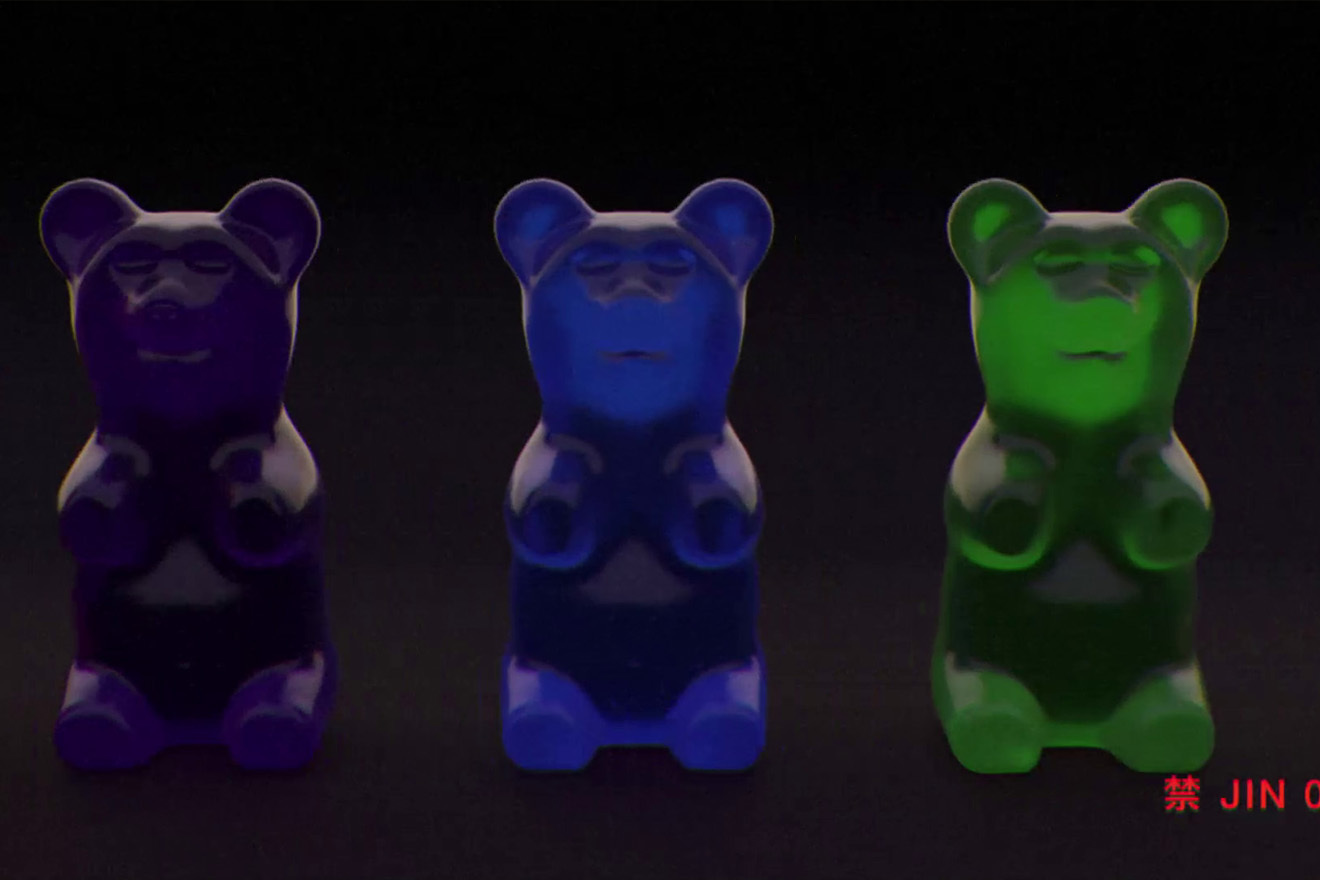
The number of regional imprints that sprouted this year is a testament to the strength and vigour of the patrons of Asia’s underground music scene. The Philippines saw techno maestro Alinep set up Deepsomnia Records as a creative outlet inspired by an MRI scan from when he suffered from nocturnal epilepsy — on the flipside of the spectrum, we also saw the megalithic Asian-focused hip hop platform 88rising launch Paradise Rising as a sub-label focused on Filipino talent only. We’re not leaving the Philippines just yet — Alinep and his better half Mica also set up techno imprint Sayaw Records to serve as a platform for local producers. Over in Taiwan, Bass Kitchen founder Yoshi Nori launched Jin 禁. Yoshi is also a founding member of Bangkok-based imprint Siamese Twins which made some serious impact this year with their sold-out debut release by newly formed Thailand-based duo Mogambo (Sunju Hargun and Jerome Doudet), a record that was put out as a limited press of red marbled 10” vinyl. Bali-based DJ and producer Marc Roberts brought some sunshine disco and piña coladas to the region with his edit-based label Pantai People. Hong Kong underground club and gallery Mihn announced the launch of their own imprint, with a stellar debut release featuring residents Sunsiare and Mr. Ho.
10. When the artists who worked a little extra this year broke out
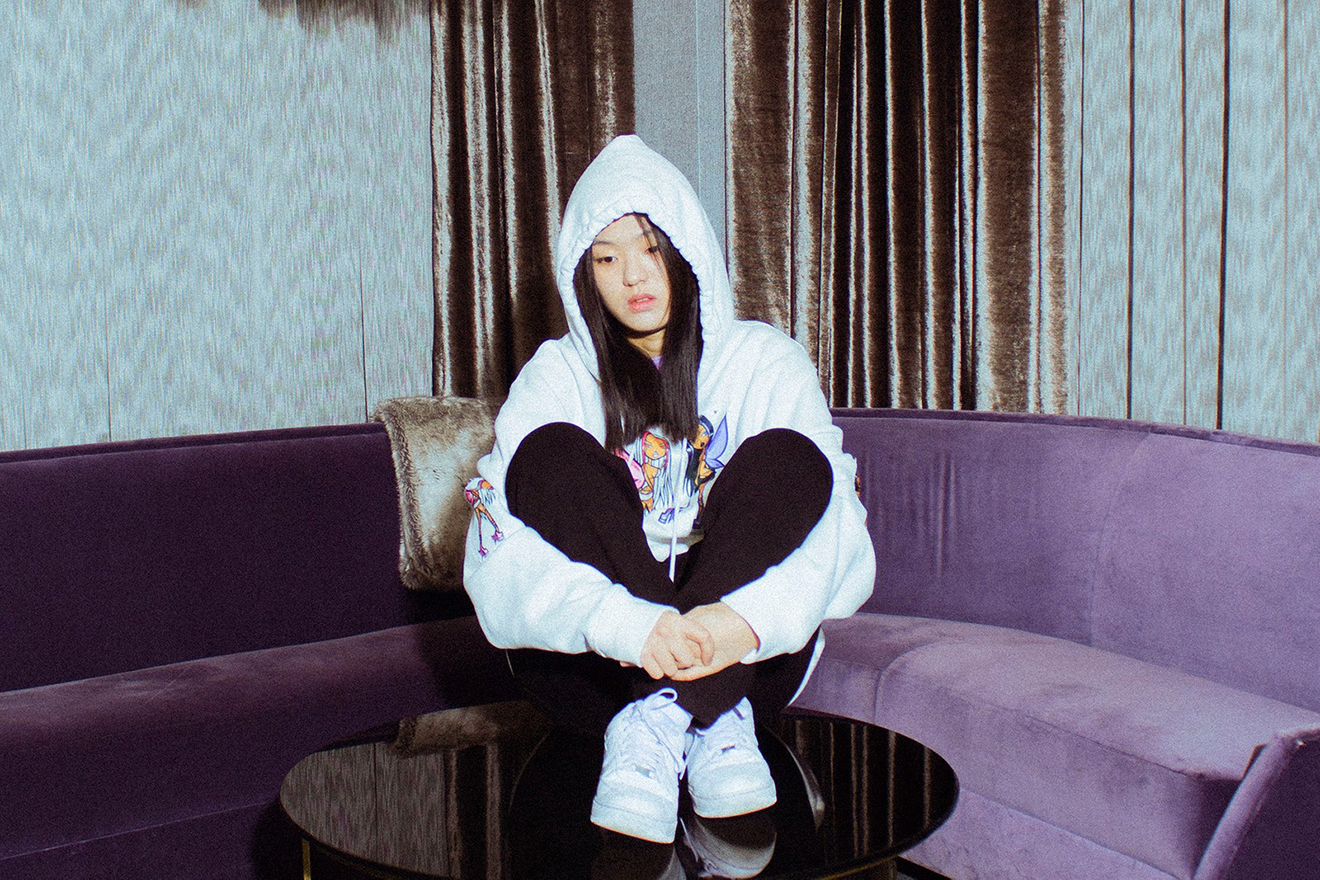
Now, we're acutely aware that the Asian electronic landscape has long proven to be exceptionally fertile ground when it comes to yielding uniquely talented creators. It is, therefore, particularly satisfying to witness the rest of the world sit up and pay attention when some of our favourite artist's generate their personal brand of dance-related fire. There have been some prime examples of Asian artists making bold strides into the international sub-conscience. We've witnessed the near-unstoppable rise of Korea's Park Hye Jin, thanks to 'Like This', 'Clouds', and a string of equally fresh releases which came to us via the legendary label, Ninja Tune. Indonesia's loveable Weird Genius trio wowed the globe with their infectious fusion beats, with standout track 'Lathi' helping them to garner a highly-prized contract with Astralwerks in the process. Fellow countryman Dipha Barus proved to the world what Indonesia has known all along – that his is a universally recognisable talent – thanks to his undeniably strong work via Steve Aoki's ULTRA camp, which included summertime sing-along, 'Down'. Japanese-Australian brother and sister act Lastlings continued their steady rise to cross-over prominence. 2020 saw the sibling's first fully-formed studio album, 'First Contact', released to critical acclaim on Astralwerks, building on their already fine repertoire. Honourable mentions too to California-based BEAUZ, who aside from keeping up a formidable release schedule this year, managed to score a giant viral hit in China with their 'Count The Hours' tune, generating over 60million streams on the Netease platform.
11. When Wonderfruit reinvented livestreaming
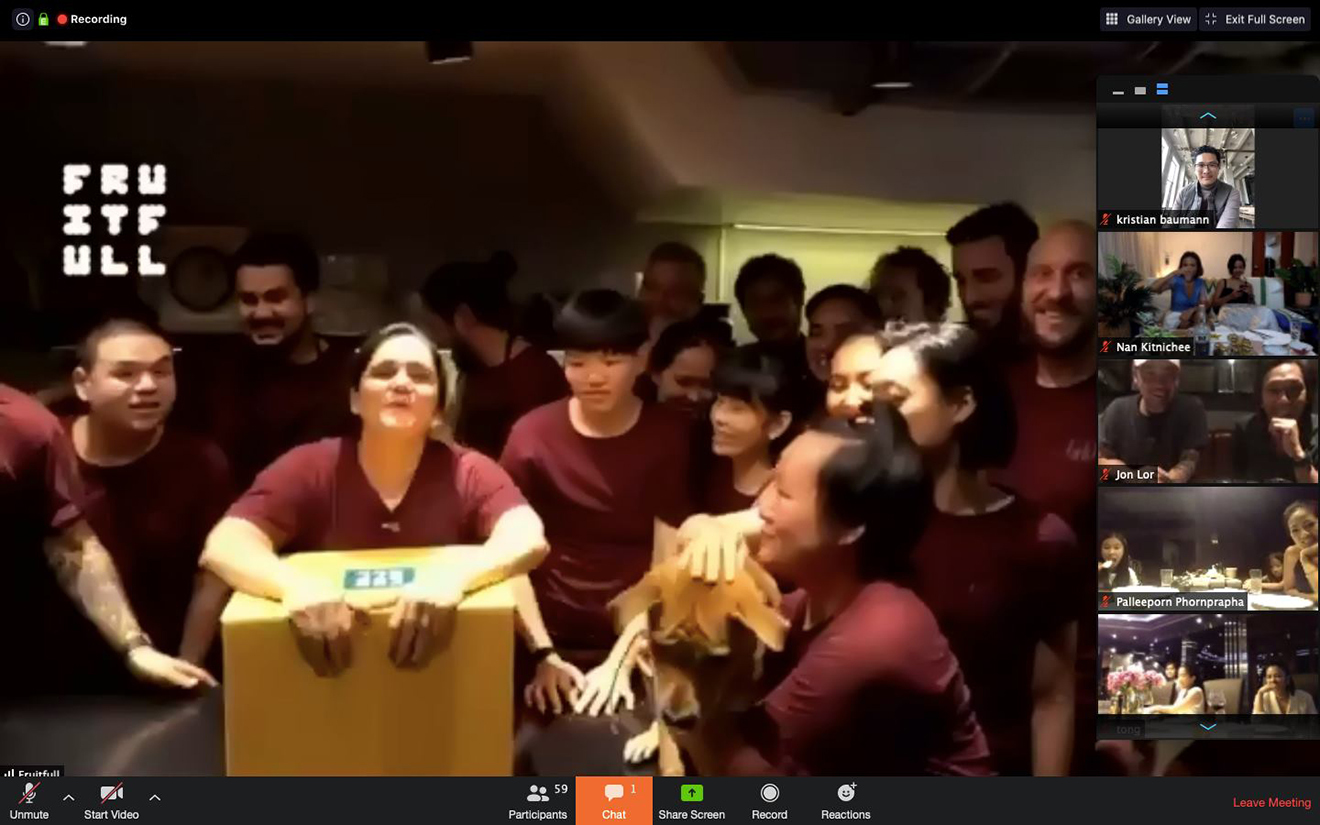
Alongside Taiwan, Thailand was also stellar in its COVID response (though people in the Kingdom had to undergo a rather rigorous lockdown). Their efforts were quickly rewarded with events returning midway through the year while the rest of the world was just starting to discover livestreaming. Wonderfruit, who’s always pushing the envelope further when it comes to pioneering new ideas, took the concept of livestreaming to the next level and conceived a creative new platform for sustainable and social interaction designed for the isolation era. The output was a music and dining experience that streamed a world-class culinary concept into your dining room, from where you could create music and have jam sessions with DJs as far as Europe while dining. Sustainable meals were delivered to your door, Michelin-starred chefs guided you through preparing it, and DJs like Nick Luscombe played music for you. In one episode, diners were invited to make drum ‘n’ bass with Suitman Jungle using items found around the house over Zoom. Besides coming up with the game-changing concept, the organizers really showed people that the first step to surviving this pandemic was not to wait it out, but to adapt your business model and make it work in the new normal.
12. When clubbing went online
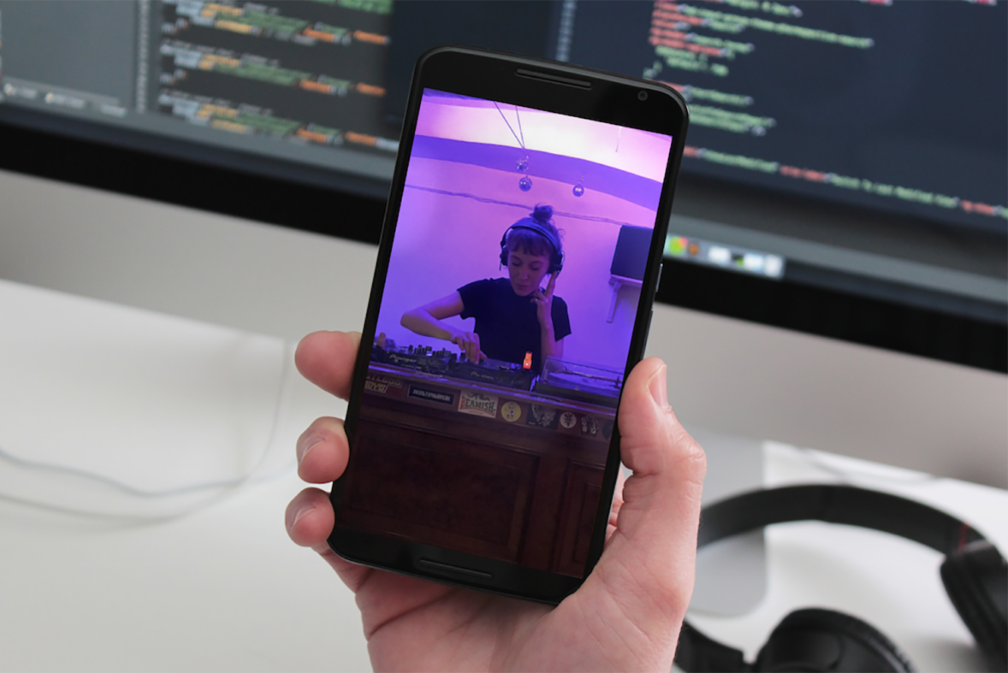
Clubbing, but online. No, not just livestreaming...actual clubbing. From paying admission to having a bouncer doing an ID check, tipping (digital gifting) to door delivery dinner and drink packages, we’re talking about the legitimate alternative to clubbing in 2020: online clubbing. A good example that does this well (and have been even before the pandemic) is Club Matryoshka, a virtual club that was started in Manila but is hosted on a private Minecraft server. Founded by a collective of artists, musicians and creatives with a common love for Minecraft, the club operates as a safe, inclusive and decolonized space, particularly for people who feel marginalized. Aside from Club Matroyshka, other DJs/artists also been have been putting in work to reclaim (virtual) spaces for marginalized communities, like Manila-based DJ DIGNOS who’s headlined virtual parties hosted by Elephant, a party collective known for their Drag Disco nights at the now-closed XX XX. In China, online clubbing is called 云蹦迪 (yun beng di), which translates to dancing on the cloud. It’s survival of the fittest, and if it isn’t clear to see, clubbing will survive.
13. When Zouk transformed from a nightclub into a restaurant, cinema & spin studio
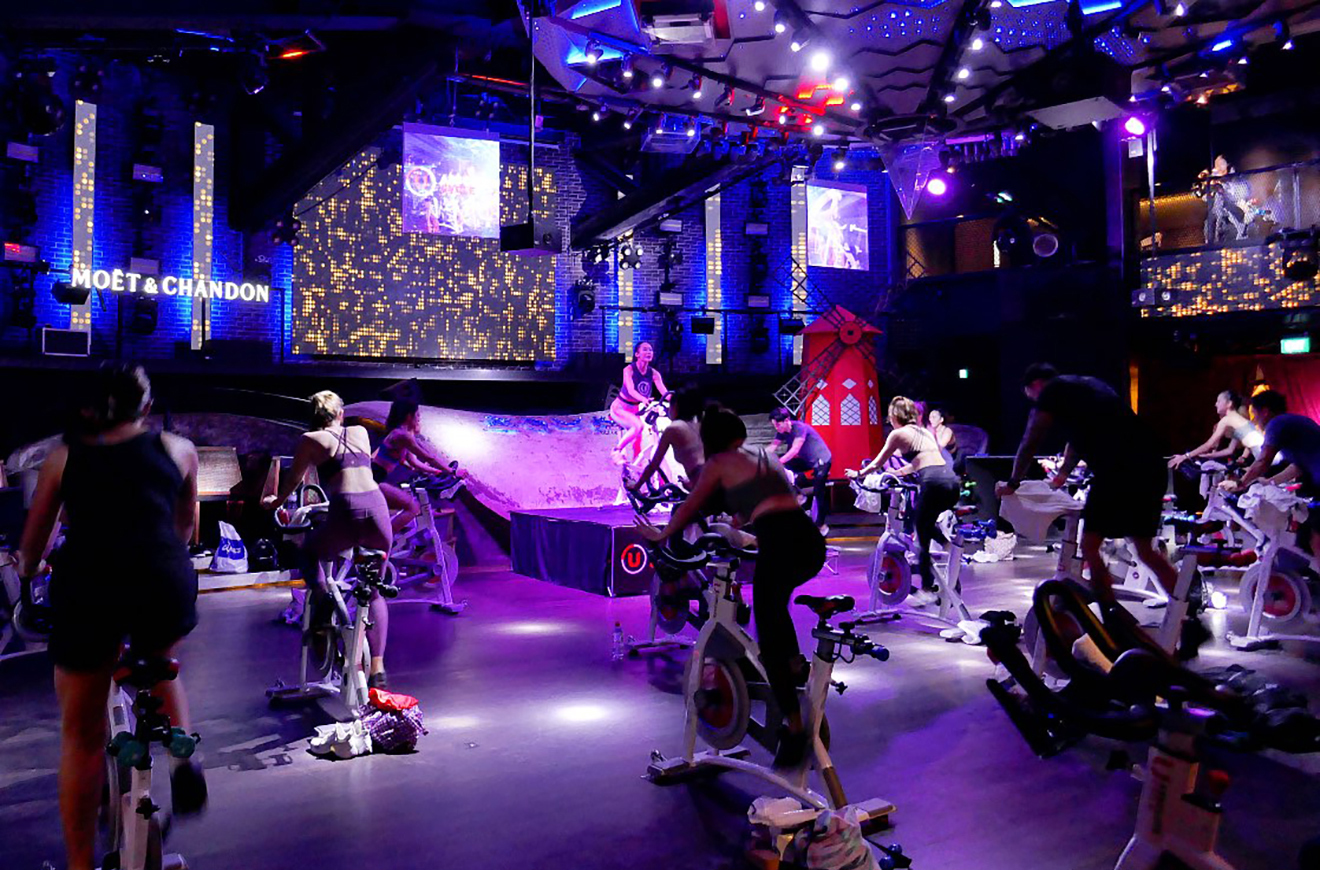
In 1991, Lincoln Cheng spotted three decrepit warehouses in Singapore — the legendary Zouk was born. Zouk was bought out by Genting Hong Kong 25 years later, who vowed to turn it into an empire. And so Zouk became the Zouk we now know, with its two nightclubs in Singapore and Kuala Lumpur, as well as a couple of cruises and festivals under its name. But the pandemic came, and Zouk was sold again — this time for US$10 million. But a good brand always (mostly) bounces back: while the Singaporean based outlets remain closed, Asia’s most revered nightclub was transformed into a restaurant, a cinema and a spin studio (à la clubbing). And next year, Zouk’s even going to Vegas, baby.
14. When one CEO fought for his right to party

The global event industry suffered colossal losses this year. While some people in the industry have been able to adapt and work on things outside of their supposed occupation, like these 6 DJs that have branched out to new ventures, many do not have the luxury of doing so. People outside of the sector often have a simplistic view of the entertainment industry; what is often underrepresented and dismissed under the carpet where talent stands, is the labour of promoters, event organizers, venue owners, audio engineers, photographers, videographers, caterers and makeup artists. In Malaysia, the government implemented the Conditional Movement Control Order in an attempt to revive the country’s economy, allowing food courts and night markets to open under the condition that social distancing measures were enforced. But social distancing measures were and are not enforced. Events entrepreneur Iqbal Ameer recognized the double standards of the CMCO: the events industry was as, if not more, capable than night markets of enforcing strict social distancing measures, but they were not given permission by the government to operate. Ameer’s been staging one-man (masked) protests at night markets to bring awareness to the CMCO’s hypocrisies.
15. When Astralwerks launched in Asia
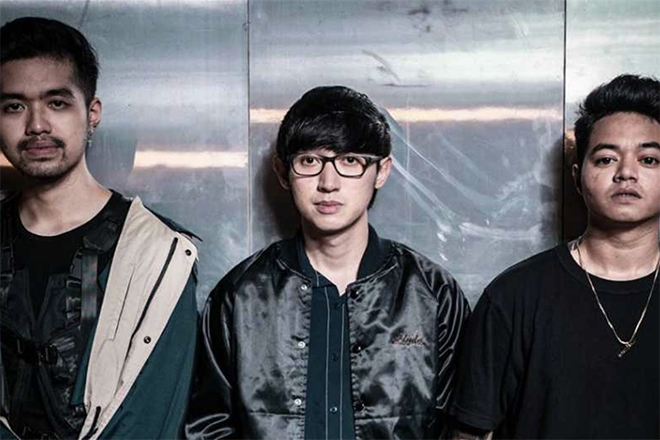
Although Astralwerks Asia first announced its launch back in September 2019 at the All That Matters conference in Singapore, alongside Def Jam South East Asia, it wasn’t until 2020 that they signed their first act from Asia — Indonesian EDM act Weird Genius — and started making waves in the region. In September, we spoke with Cindy Gu, the head of Astralwerks Asia, about current trends in the market, and she offered her insight and predictions on the opportunities for artists in Asia to come. There’s so much talent in Asia that deserves global attention, and while smaller labels (and artists themselves) have been publishing and promoting their art ceaselessly and creatively, a major label like UMG can undoubtedly speed up the process of lifting regional artists to the global stage. This expansion is just one of many among UMG’s efforts to support independent talent and teams throughout the continent.
16. When Wonderfruit threw a weekend-long food festival
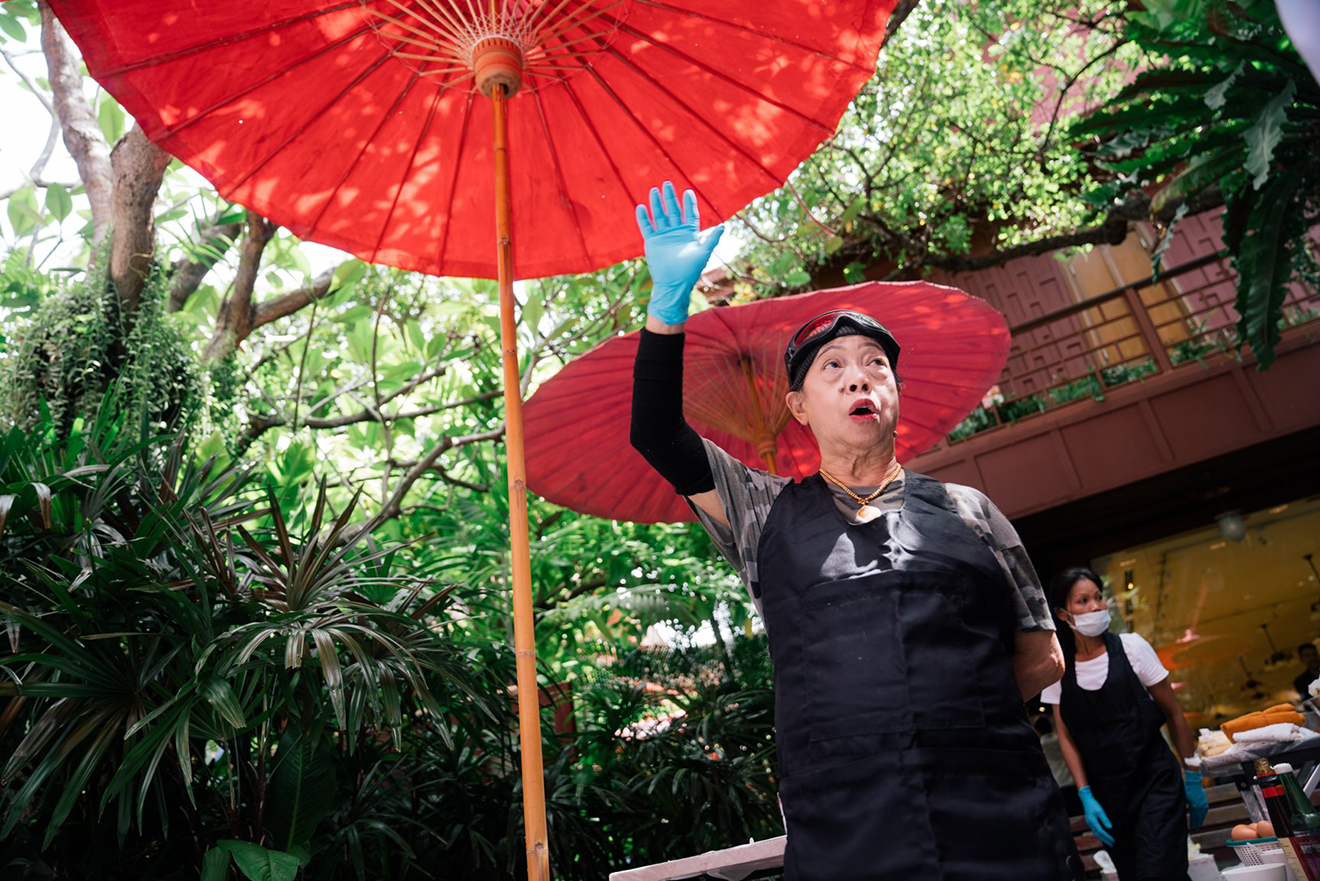
For six years, we've known Wonderfruit to be an annual festival that revolved around music. Though we knew there were other elements, we never seemed to make it past the music (there was just so much of it). Like most things, Wonderfruit was cancelled in 2020, but Thailand wasn't cancelled so the organizers jumped on the opportunity to throw...a festival. But instead of DJs as headliners, they booked chefs. Amid a global pandemic, the team behind Wonderfruit conceived a fresh brand dedicated entirely to food and topped it off by throwing a festival to celebrate. The weekend-long foodie festival that was held in November closed the gap between food, culture and sustainability — and finished off with some music. They paired local chefs and cooks, from back soi heroes to Michelin starred names, with diners en masse and delivered organic markets, street food pop-ups, workshops, dinners, feasts, masterclasses and more — all delivered with that whimsical Wonderfruit touch. The concept might have been launched during a pandemic, but we expect it to continue and can't wait to get back into Thailand and experience this freshly curated concept by Scratch First.
17. When livestreaming saw Asian artists placed under a global spotlight
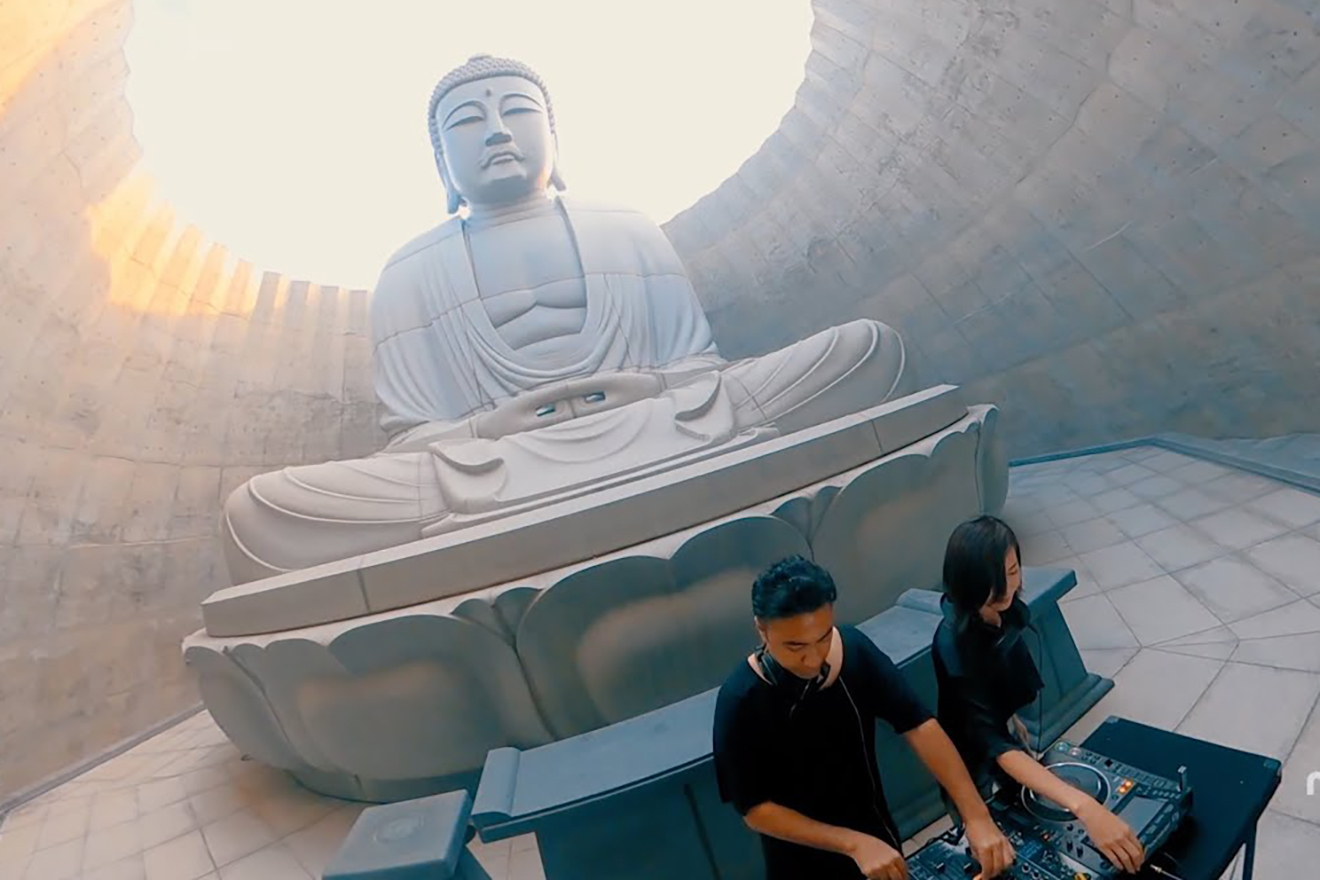
2020 was the year that livestreaming substituted for festivals. We all miss live music, of course, but it turns out livestreaming was good for a lot of artists in Asia, like Taiwan’s RayRay and Thailand’s Mendy Indigo who were invited to join an epic New Year’s Eve livestream hosted by Beatport and Absolut, Japan's Drunken Kong or Indonesia’s Dipha Barus who was tapped by Ultra for a livestream. 2020 was the year that (digital) events took another step towards globalization. For the cities that have bounced back from the pandemic, lineups for live events are becoming increasingly localized. But with the rapid adapting of music technology, livestreaming has become more and more streamlined, and organizers have been (having to be) more and more creative with their approaches to curating events in the digital sphere. The pandemic has violently yanked the gaps of inequality in our society, revealing our differences in privilege and values, but there have been many examples that show that organizers have been intentionally curating more diverse and inclusive lineups. To give a voice, to share the platform (or stage), is to move one step closer to true diversity.
18. When Mixmag Asia launched in Taiwan
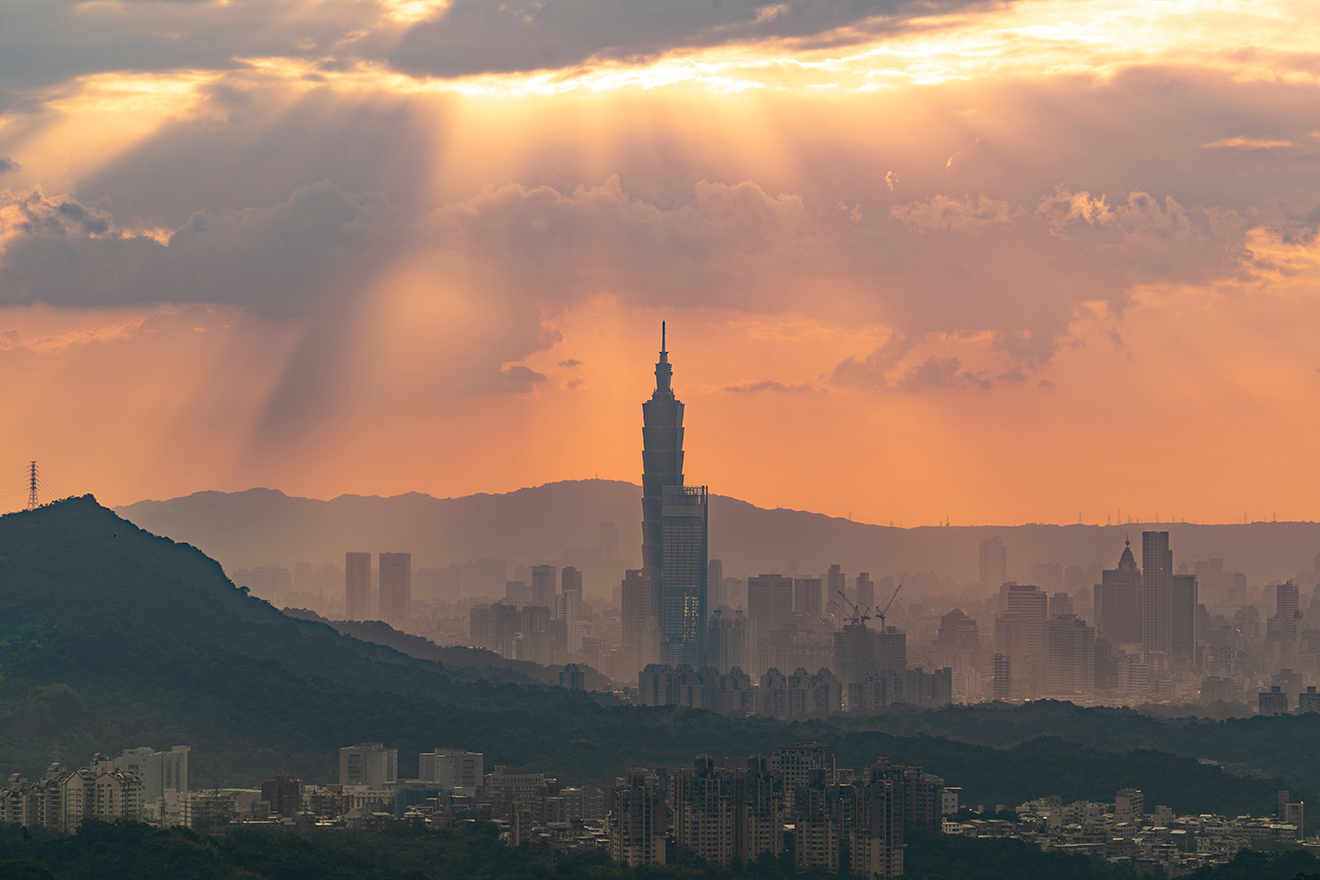
Asia is extremely diverse, with plenty of languages, cultures and music communities with nuances that differ greatly from neighbour to neighbour. As such, it was time to grow and start delivering content that caters to our localized communities. Perhaps long overdue, Taiwan got its very own platform to share news about Taiwan with the world in September of this year — in Chinese. Since its launch, Mixmag Asia Taiwan has focused on delivering news about Taiwan, Asia and beyond to our Chinese-reading music fans across Asia.
19. When resident DJs reclaimed their dance floors
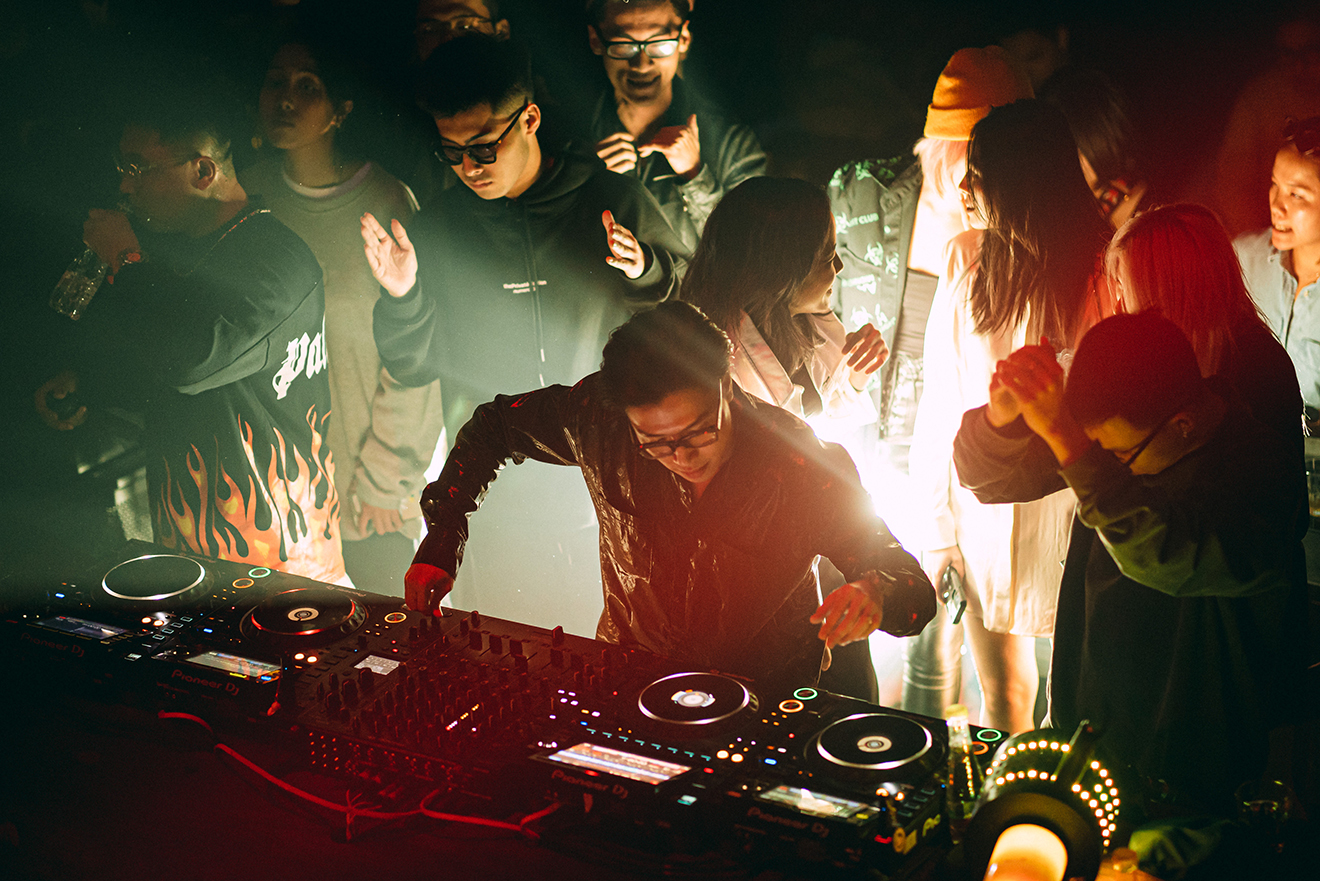
It wouldn’t be wrong to say that the job of the resident DJ is perhaps the most undervalued role in the nightlife industry (and underpaid, under-recognised, etc.). It also wouldn’t be wrong to say that it is perhaps one of the most important. But 2020 changed that: 2020 was the year that resident DJs reclaimed their dance floors. Without touring and without big budgets — and without "headliners" — clubs in Asia have been operating a little differently. The silver lining has been that both local and resident DJs have been seen playing headlining spots on Saturday nights in clubs around Asia and it created a new kind of dance floor camaraderie within music communities in Asia. It's fair to say that we have all learned to not take our clubs for granted, and that next time your buddy the DJ asks you to come and see him play, you'll be there front and centre.
20. When digital media platforms evolved to better keep us connected to the music
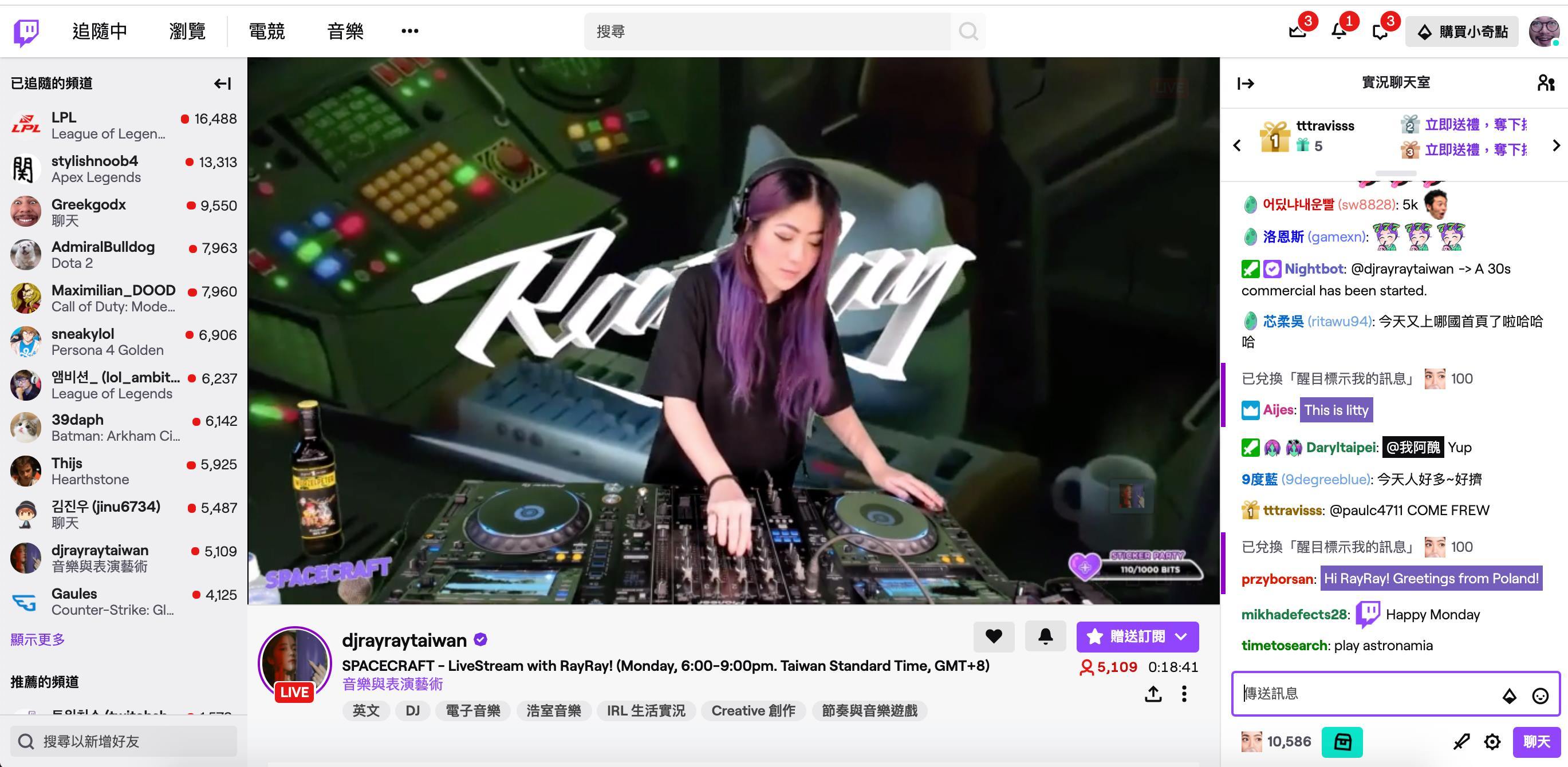
The electronic music scene in Asia is largely populated by independent DJs, musicians and producers who were forced to further-depend on online outlets for people to discover them and their music. And despite grossly popular platforms like Facebook and Spotify proclaiming their lack of support fairness to independent artists, 2020 saw some commendable movements from other digital media players — Bandcamp takes the prize for becoming the anti-Spotify by raising an impressive US$40 million for independent artists around the world through their Bandcamp Friday campaign (which they will continue to honour in 2021). On the livestreaming front, Twitch proved to be 2020’s most popular alternative to Facebook for festivals to continue as digital events (and bedroom DJs to show us more than we care about) through live sets. Pushing on the audience engagement factor, Whalebone TV quickly developed real-time feedback and interaction with their new Seismo innovation arm, adding valuable insight to their monetising application. DJ-friendly Mixcloud also joined the livestream bandwagon, advancing their already successful subscription service.


